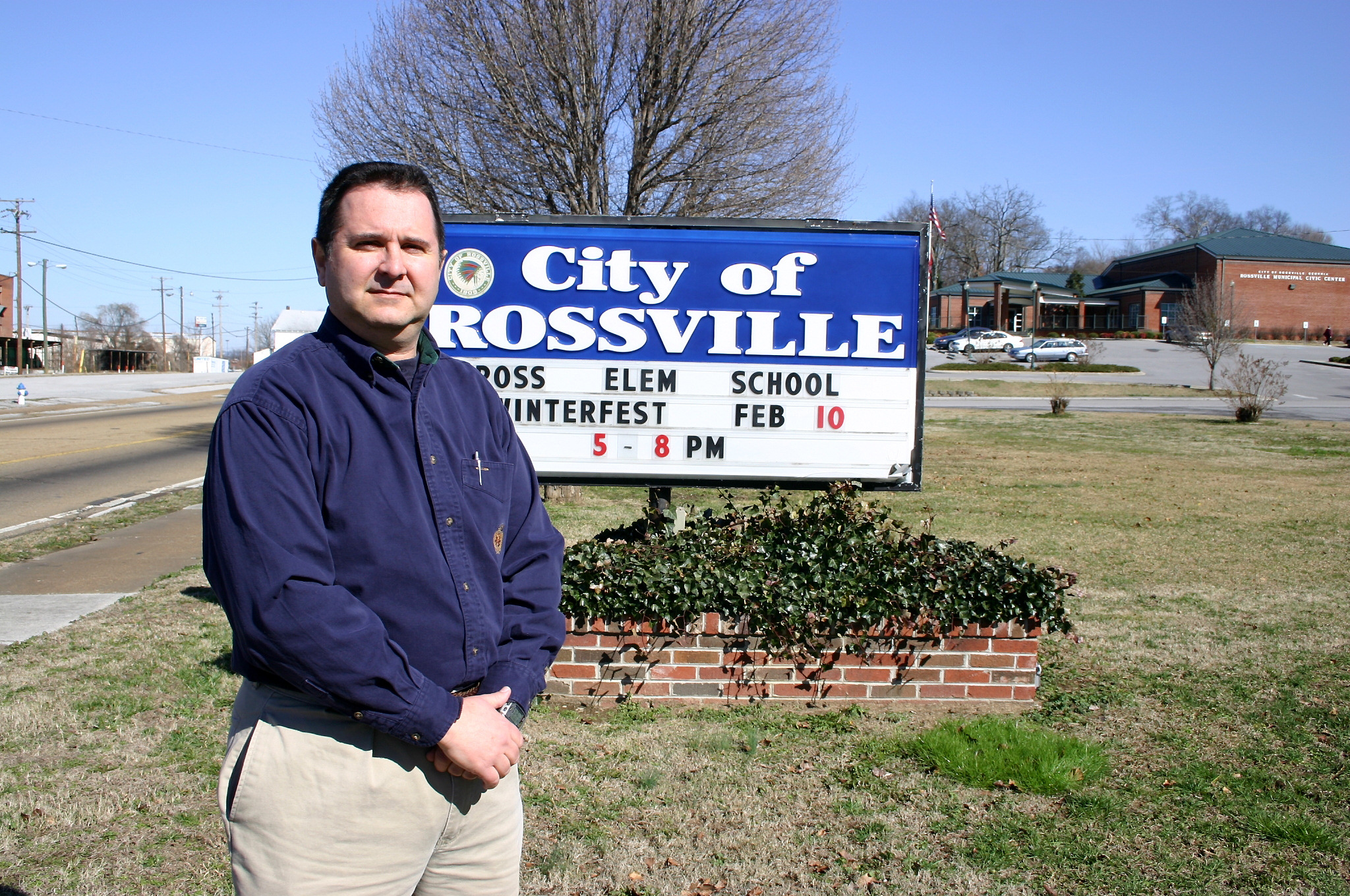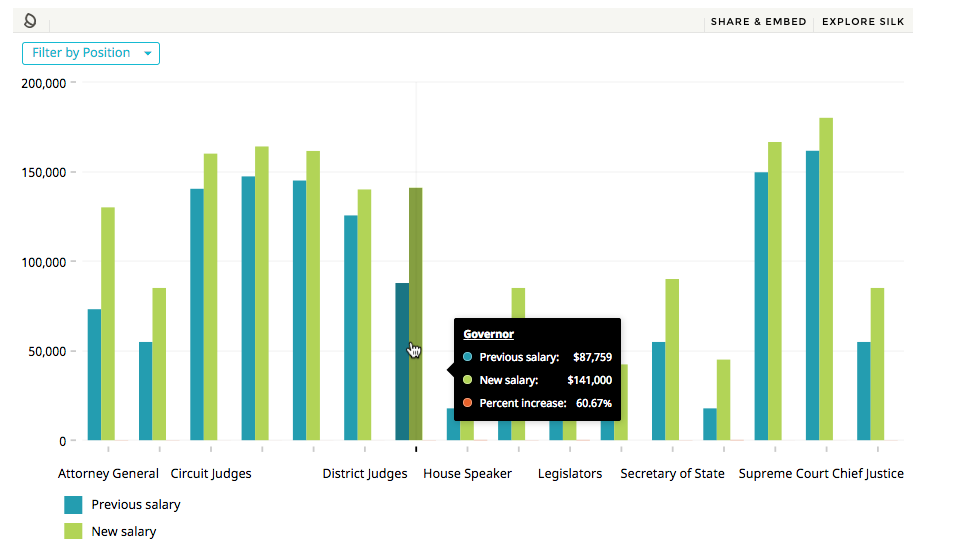The city of Lookout Mountain., Ga., has been laying sidewalk along Lula Lake Road with the goal of linking one day to its sister city in Tennessee, so pedestrians can walk between the two downtowns without dodging traffic.
Sidewalk construction slowed to a standstill, though, after the City Council sidestepped a property tax increase and approved an austerity budget that also laid off two workers and eliminated employee raises for the first time in a decade.
City officials have a backup plan, of sorts, to finish the sidewalk.
They're selling T-shirts with the city logo on them at City Hall for $10 a pop to help pay for the pathway to Lookout Mountain, Tenn.
"I've sold a few," City Clerk Cindy Roberts said. "I'd love to the see the T-shirts take off."
"Me and the mayor's buying most of them," she said.
The upscale residential enclave's experience follows what seems to be a pattern these days in northwest Georgia.
Elected officials have ruled out tax increases for a variety of reasons ranging from the poor economy to a pervasive anti-tax sentiment in the heavily Republican region that has an active tea party movement.
So now, it's a matter of waiting for the other shoe to drop.
Municipal officials are wondering what cuts to make and how to pay for services. They're also eyeing fundraising to pick up the slack -- and praying for an economic turnaround.
"Trying to be optimistic"
No one's raising taxes in Walker County, Ga.
City, school and county elected officials eschewed millage hikes for the fiscal year that began Oct. 1.
In some cases, cities found other ways to boost their bottom line. Lookout Mountain, Ga., is restructuring its sewer debt so the overall payment stays the same, but annual cash flow will increase by about $60,000. While the LaFayette City Council didn't raise the millage rate, it did boost fees, such as the base rate for natural gas which increased from $8 to $11 per month.
The Rossville City Council came closest to bumping up property taxes. But city leaders let a proposed millage increase die at its Sept. 10 meeting after hearing loud and long opposition from residents who packed into council chambers.
"You can't spend more than you've got coming in," said Travis Poole, a Chattanooga financial planner who spent more than 30 minutes at the podium challenging the city's budget.
Poole moved to Rossville recently and hadn't been involved in city politics. He addressed the council at the request of neighbors on South Mission Ridge Drive, which is said to shoulder the bulk of the city's property tax burden.
"The first thing to do is cut expenses," Poole said last week.
Rossville plans to dip into reserves to make up a roughly $100,000 shortfall, but Poole thinks the city could look at fundamental cuts, such as doing away with its fire department and using the county's firefighters, or closing the Rossville Public Library.
"That will save the city like $55,000, by shutting down the library," he said.
The city isn't proposing to close the library, but did shave about $12,000 from library funding.
Mayor Teddy Harris thinks fundraising could make up the shortfall.
"If Dade County can raise $25,000 for their library, surely we can raise some money for our library," Harris said, referring to a recent successful effort in the neighboring county.
While Harris said he doesn't like any type of tax increase, he defends his failed proposal to raise the millage rate to replace a $6.50-per-month administration fee that goes to every residence with a water meter.
The people who would have benefited didn't attend City Council meetings to support the fee's elimination -- while opponents whose property taxes would have risen showed up en masse.
"That would have been a tax break for probably a vast majority of people," Harris said. "But we have a small group of people that didn't want that to happen."
As for the future of the city's budget, Harris said, "I guess we'll see."
"We're trying to be optimistic that the economy could turn around."
"Cuts have to come"
Walker County Finance Officer Greg McConnell is still waiting to put together a budget for the fiscal year that began Oct. 1.
"Cuts do have to come this time," McConnell said.
That's because Sole Commissioner Bebe Heiskell held the millage rate steady -- even though the overall value of property in the county has dipped by about $35 million, which means county government will lose about $200,000 in annual revenue.
"I think the tea party does have a big influence on folks," McConnell said. "We've always had a big, vocal group about being anti-tax."
James Groce was one of the founders of Walker County's tea party, which met for the first time on tax day, April 15, 2009, at Joe Stock Memorial Park in downtown LaFayette.
The party has made its presence felt at government meetings.
"Whenever the property taxes were going up, we were in Bebe Heiskell's office," Groce said. "We overflowed into the hall. I think there were 30, 35 people there."
"We're definitely opposed to any increase in government whatsoever at this time," he said, citing the down economy's impact on families.
But large groups of angry voters don't always stave off tax hikes.
Despite overflowing crowds, the Whitfield County Board of Education recently OK'd a four-mill property tax increase. Without it, school officials said, the district would join the list of more than 70 Georgia school districts that have gone bankrupt.
And the Whitfield County Board of Commissioners may approve a two mill increase on Oct. 11. County officials say the increase, the first in a decade, is needed because the county's tax base, or digest, has dropped 22 percent.
Whitfield school and county officials say they've cut all they can from their respective budgets. The county's budget has dropped from $42 million in 2008 to about $35 million now. The school district has cut staffing and spending by almost 50 percent, the district's Chief Financial Officer Ron Hale, told the Dalton Daily Citizen.
Heiskell said she can't raise Walker County property taxes in this economy, because people are struggling financially and many lack jobs.
"As far as I'm concerned, it's nothing to do with the tea party," said Heiskell, who narrowly won the Republican primary and is running for her fourth term on Nov. 6 against write-in candidate Ales Campbell.
"The economy is really, really in the toilet right now," Heiskell said. "I could use some more [revenue], but when the economy is bad, it's not a time to raise taxes."

